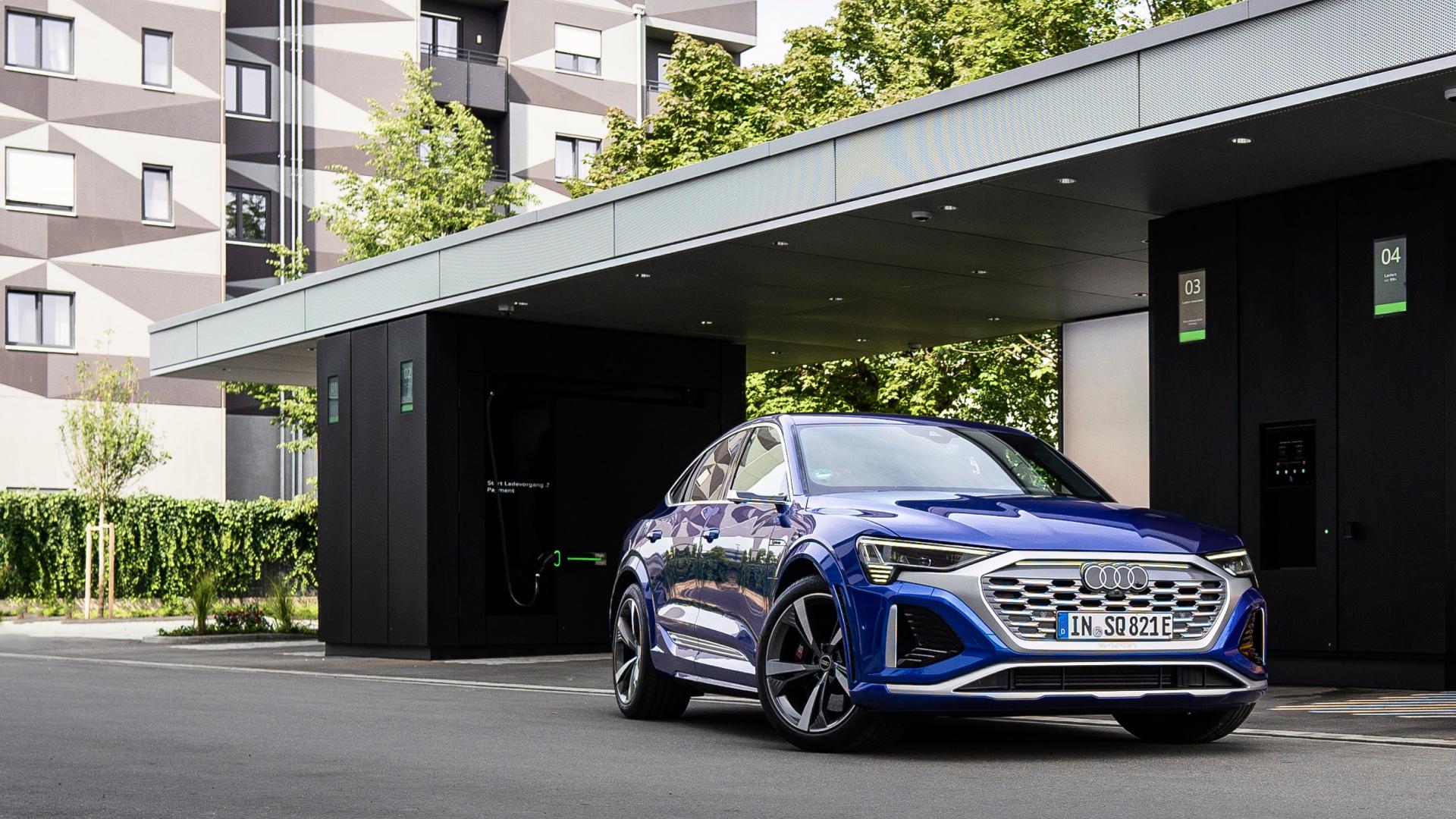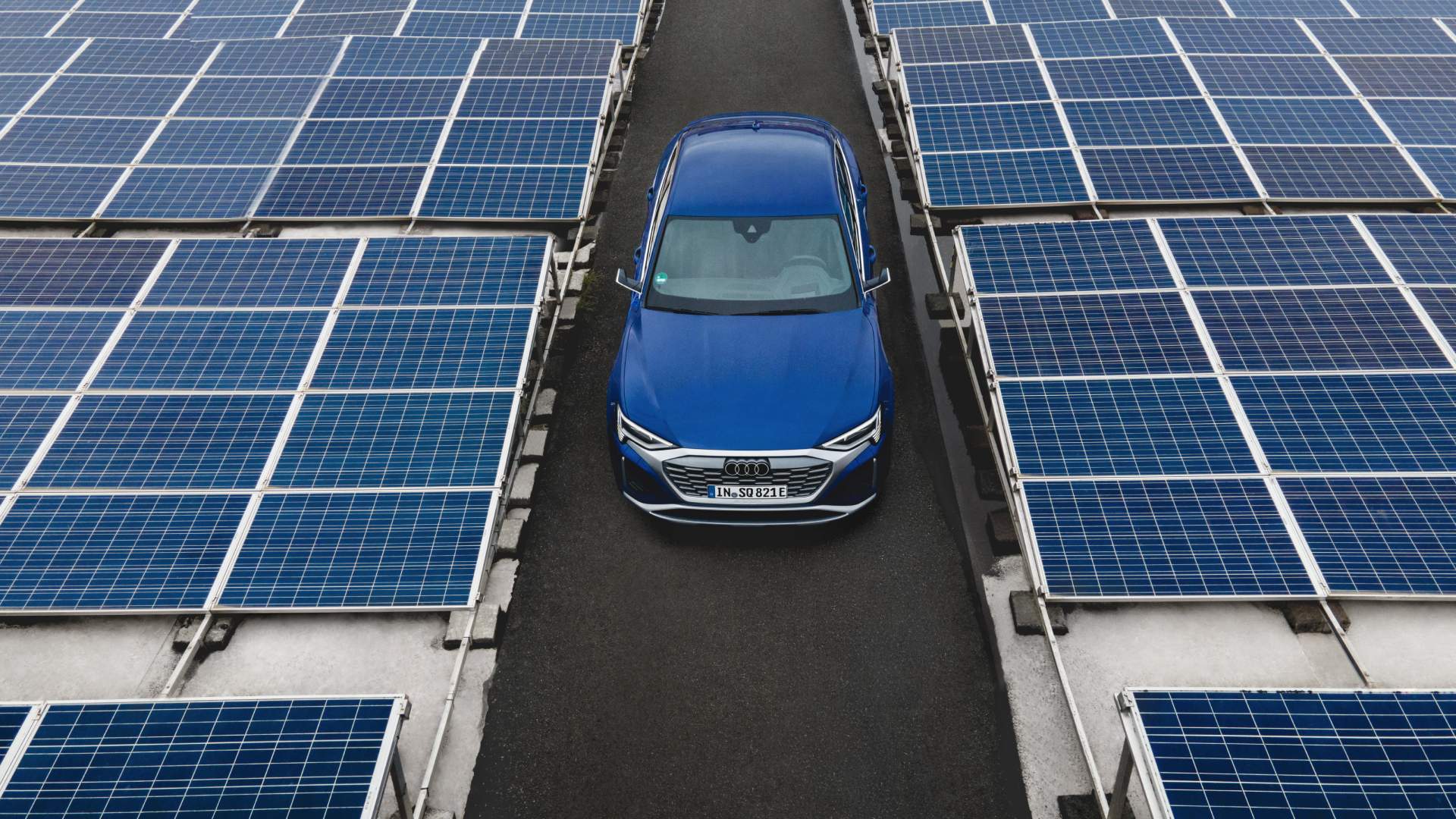Sustainability is just one of the Audi Q4 e-tron car’s many fascinating facets. Here, you can learn more about the all-electric Audi car.
“Humans communicate best through storytelling”
For the first time, the Greentech Festival took place in the USA. Spencer Reeder, Director Government Affairs & Sustainability Audi of America, was part of the event. In this interview he talks about intercontinental tasks in the field of sustainability and courage for change.

From transportation with environmental topics to geophysics and also climate science and climate policy – Spencer Reeder has been involved with environmental matters throughout his career.
From transportation with environmental topics to geophysics and also climate science and climate policy – Spencer Reeder has been involved with environmental matters throughout his career.
Mr. Reeder, you have been involved in climate science and climate impacts for most of your professional life: What brought you to the automotive industry and Audi in particular?
I started my career in transportation, in commercial aircraft design to be precise. I was working on environmental topics pertaining to aircraft materials back then, before I pivoted my career over to geophysics and then climate science topics a few years later, eventually including climate policy as well. What became increasingly clear in my climate work was that society would not successfully address the growing crisis without fundamentally rethinking how we powered transportation. In February of 2016, transport became the number one source of greenhouse gas pollution in the United States. In 2018, I met with the President of Audi of America at the time, Scott Keogh, and we both looked each other in the eye and talked directly about climate change. I was convinced of his commitment to the transformation and impressed by what AUDI AG had laid out as its strategy.
As Director of both Government Affairs and Sustainability, what does your normal workday look like?
Because of the incredible diversity of topics that span both Governmental Affairs and Sustainability, there’s really no such thing as a normal workday for me, which can often be challenging, but certainly never boring. One common element, that is part of most of my days, is ensuring that Audi has a seat at the table and is continually engaged as a thought leader on the future of sustainable mobility, helping craft solutions that address the climate crisis. In my role, it’s crucial that we form strong partnerships with our stakeholders in government, within civil society and the broader public, and that Audi demonstrates to all of them that prioritizing sustainability and good policy leads to business success.
“The key is to understand where some risk is necessary to achieve the outcomes one seeks.”
Spencer Reeder
What can the USA learn from Europe and vice versa?
Having lived on both continents, I would say there are more similarities than differences. Public awareness of electric vehicles (EVs) in both places has really rocketed in just the past year. I’ll start with what Europe can learn from the U.S. — the decarbonization of the electrical grid can and should be accelerated. This decarbonization trend has been underway in the U.S. now for several years and particularly in the Western United States. As the grid is progressively cleaned up, the climate benefits of our all-electric vehicles are greatly amplified. In terms of what can be learned from Europe here in the U.S. – it’s clear that an ambitious emissions policy coupled with broad and generous EV purchase incentives from the government, as seen in several countries, alongside investments in infrastructure, can really move the market quickly. Norway has demonstrated this for years, and the more recent trend in EV sales in Germany show how the right combination of policies can really move a market.
Audi x Greentech Festival New York 2022
Creativity is certainly necessary to convince people of new ideas: Where do you personally get the inspiration from?
Humans communicate best through storytelling. It makes sense because this is how humans have passed along information for millennia. We in the climate science community didn’t really understand that very well and tried for years, with scant success, to present more and more data to the public showing the worsening climate trends. However, most people aren’t immersed in that world, so I think what’s been learned is that we need to communicate through stories to which we all can relate – stories that connect to our daily lives where possible, to what’s most important to us as individuals. For me, those stories connect back to nature, to wilderness, to what we’re losing, even today, in our wildlands and the planet’s finite number of intact ecosystems where the climate, in so many of these areas, is being fundamentally disrupted. And now, as I introduce my 8-year-old son to these sublime landscapes, I’m additionally inspired to want to preserve all that for him and future generations to experience.
Managing change always means managing risks: How much of a risk-taker are you?
Risk is such a perception-based and context-specific thing. It’s often very subjective. However, change by definition implies risk for some people. Resisting change and holding onto the status quo often can, ironically, introduce much greater risk and can frankly endanger the future. This has played out in many industries over the years, including our own at the moment. I’ve personally spent a lot of time in the mountains, including solo-adventures in the wilderness, back-country skiing, ice and rock climbing – I think many would characterize those activities as risky. However, these are things I’ve developed the skills and experience to do relatively safely and what I gain personally from immersing myself in those sublime environments is fundamental to who I am and to how I engage with the world. I think we all confront and wrestle with various types of risk throughout our lives, both personally and professionally, and I think the key is to understand where some risk is necessary to achieve the outcomes, one seeks.




